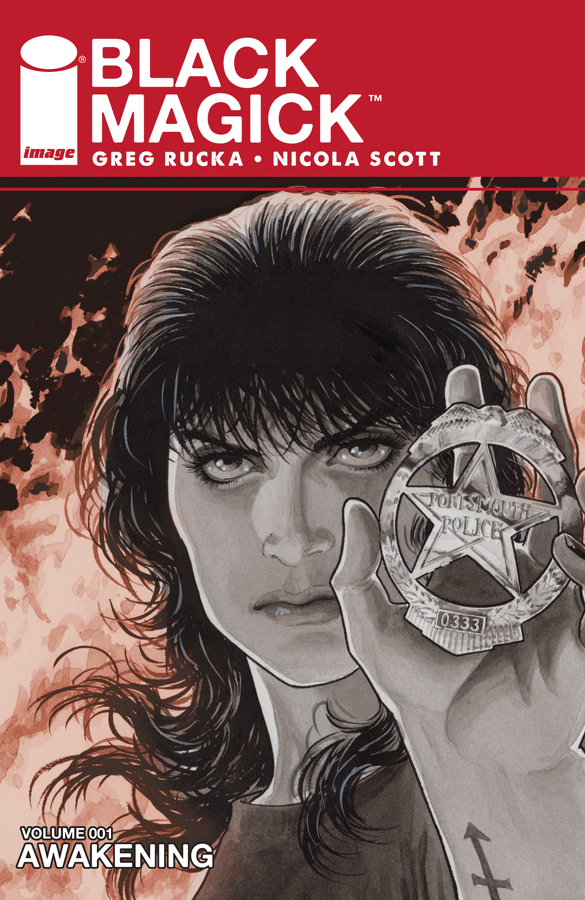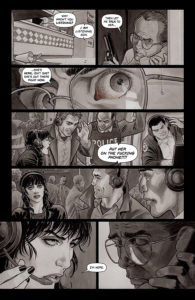I am a contrary person and at times in my life I have totally given up on certain things that other, normal people find it totally okay to engage in with moderation. For example, I went through a period where I felt slow-dances were “boring, rotating hugs,” and used such time to rehydrate for the next uptempo set of songs.
There was a period in my life where I had completely given up on movies. They were necessarily assembled by committee and that meant they couldn’t be perfect. Who would want a story spoon fed to them visually for two hours when they could read the same material four times as fast?
Our movie collection makes obvious that I overcame my discrimination, though if you example that large library you’ll see that the films they largely fall into one of two camps. One is special-effects or period films like Star Wars or Braveheart, which present a reality I could not otherwise witness. The other are the finely coordinated works of auteurs like Wes Anderson. Some are both, like Primer and Donnie Darko, or most of Christopher Nolan’s films.
I still don’t see the point of watching a two hour comedy or drama that it took hundreds of people to produce unless I am watching it for some spectacle, whether that’s visual or in caliber of performance.
Yet, the sheer scope of film cannot be denied. That widescreen window on the world and its beautifully pushed colors – that is a thing to covet and convert to other mediums. It is why television shows and advertisements and comic books yearn for that stamp of cinematicism.
 That wasn’t always the case for comics. I’m not sure when it started – perhaps with David Finch’s widescreen take on The Ultimates, which ultimately informed Marvel’s The Avengers film. Now it has infected the entire medium. No more caption boxes or thought bubbles, because movies so rarely have narrators and voice-overs. Massive establishing shots with no text, despite the fact that each panel tells the geography of a scene in miniature. Glossy colors that cram in reflections and lens flares, because only movie magic can help you suspend your disbelief.
That wasn’t always the case for comics. I’m not sure when it started – perhaps with David Finch’s widescreen take on The Ultimates, which ultimately informed Marvel’s The Avengers film. Now it has infected the entire medium. No more caption boxes or thought bubbles, because movies so rarely have narrators and voice-overs. Massive establishing shots with no text, despite the fact that each panel tells the geography of a scene in miniature. Glossy colors that cram in reflections and lens flares, because only movie magic can help you suspend your disbelief.
Every comic book wants to be its own film, but very few of them actually feel like one.
![]()
Black Magick, Vol. 1 

Collects issues #1-5 by Greg Rucka and Nicola Scott, with color assistance from Chiara Arena.
Tweet-sized Review: Black Magick v1: spellbinding cop procedural w/dose of magical ritual, but only half of Act 1…I want the whole play!
CK Says: Buy it.
Black Magick is an entrancing, deliberately-paced dose of witchy mystery, like Homicide: Life On the Streets crossed with The Craft, by a pair creators at a newfound apex of their powers.
Not a word more can be said for this book without talking about artist Nicola Scott’s grayscale, ink-washed artwork. It is a sight to behold. Black and white major label comics are few and far between, but this isn’t true black and white – her flood of gray inks have tone and depth. They give her figures a sense of texture and weight that would be hard to replicate with typical digital coloring. Chiara Arena contributes only occasional splashes of color – a bloodshot eyeball, a burst of flames, or a green mist of spellwork.
Scott’s world is filled with so much detail and organic motion that panels seem to sweep from one to another like a strip of film passing across the bulb of a projector. At points, I honestly forgot I was reading a comic book with static pictures and tangible pages. Scott’s art transported me.
The place to which I was transported is Portsmouth, where in the middle of the night a witches’ circle is interrupted by the ring of a rogue cell phone. Rowan Black is the culprit. She clumsily excuses herself from the ritual to head to her other vocation – as a detective called in to the scene of a hostage negotiation at request of a hostage taker she’s never met – but who seems to know her well.
That is just the first of many chilling coincidences that confront our heroine, who would be content to be a cop by day and contain her supernatural activities to her nightly circles. Despite some minor runes and glamours, we don’t see anything overtly magical until a terrifying final scene, yet the setting feels otherworldly. Maybe it’s Scott’s oppressive grays suggesting things lurking just around every corner.
 Greg Rucka’s first issue script is perfection, from its cold open in the witches circle to the aftermath of the hostage crisis. It contains zero exposition but tells us all we need to know about Rowan Black – plus a few hints of things we won’t be outright told. At this point I have fully conceded that Rucka can do no wrong. I’ve read him in so many different genres (noir, dystopia, steam punk, superheroes) and loved every one.
Greg Rucka’s first issue script is perfection, from its cold open in the witches circle to the aftermath of the hostage crisis. It contains zero exposition but tells us all we need to know about Rowan Black – plus a few hints of things we won’t be outright told. At this point I have fully conceded that Rucka can do no wrong. I’ve read him in so many different genres (noir, dystopia, steam punk, superheroes) and loved every one.
The pace of his script is deliberate – neither rushed nor decompressed. We move through the plot steadily, easily populating our world with cops, friends, and spouses, plus a shadowy syndicate who could be for or against Black. As Rowan’s fears continue to mount, it’s only Alex she can confide in an ask for assistance. Her trusting, almost doting partner Morgan can sense that something is amiss, but he’s in the dark about her magical double life.
Rucka is careful never to brand her as a hero. Yes, she’s a cop, and we don’t see her doing anything evil, but we get tiny pinpricks of hints at her past – a pinch of dialog so small you barely feel it. The weight of what we don’t know about her and how her magic works adds to the mounting dread as the series presses on, such that you never entirely believe she might not deserve what’s coming to her. Even after the closing confrontation with something clearly evil there is no indication we’ve met any character who is explicitly good.
Scott’s Rowan is svelte but with slightly masculine facial features and smokey eyes, a dead ringer for bangèd 70s rockers like Chrissie Hynde or Joan Jett. She wears a set of strong shoulders via her motorcycle jacket, but stripped of her outer layer by her hostage-taker or at dinner with friends she is more svelte. Yet, in scenes with her willowy blonde witch colleague Alex she looks imposing. Scott’s faces and figure-work are astounding throughout and make this a book worth starting at, but the clear choreography of her one fight scene shows she’s up for whatever mischief Rucka plans to weave into the story.
Original issues of Black Magick included additional back matter – a prequel prose story that filled in the story of this world. It does not appear here. While I realize it’s incentive to make the leap to buying single issues physically or digitally I can’t help but be annoyed. These are not supporting or critical essays that act as a fun bonus in single issue form – they are part of the world-building. To be deprived of them here feels like a cheat, which would dissuade me from buying another volume if this story wasn’t so damned good. (They’re probably being withheld for a future deluxe edition, which is even more annoying.)
It’s tough to end an Image first volume on such a cliffhanger when no further issues are printed. Though Rucka and Scott have every intent to return to this title (Rucka refers to #5 as “an intermission for Act One“), they are both part of the team on DC’s newly re-launched Wonder Woman at the moment with no sixth issue of Black Magick solicited.
In the meantime, Black Magick is slow-burning flame of read with sumptuous art, but you should only pick it up if you’re prepared for a long wait for the next edition. Otherwise, you might simply want to put this on a to-do list and wait for the eventual deluxe edition.